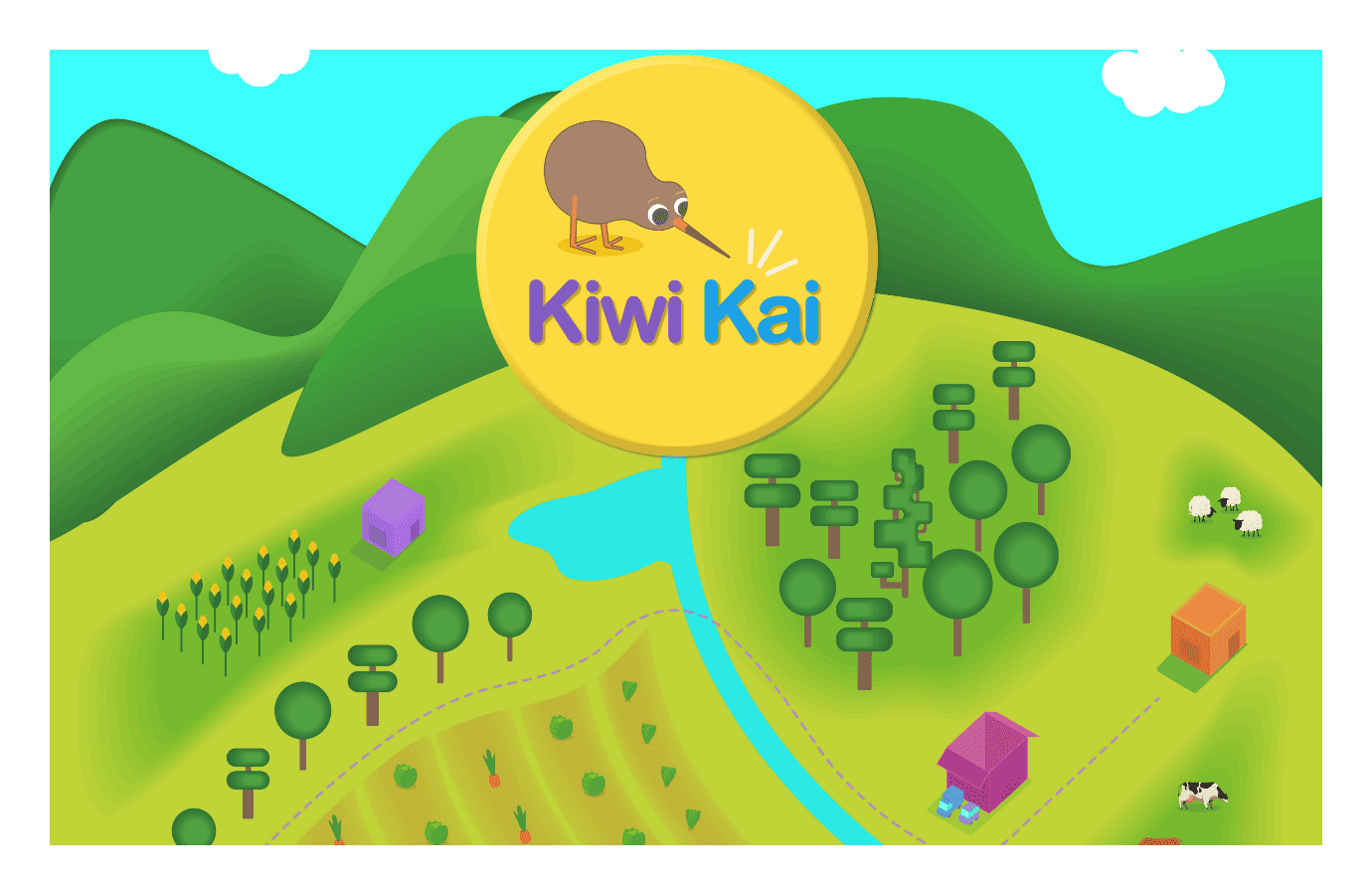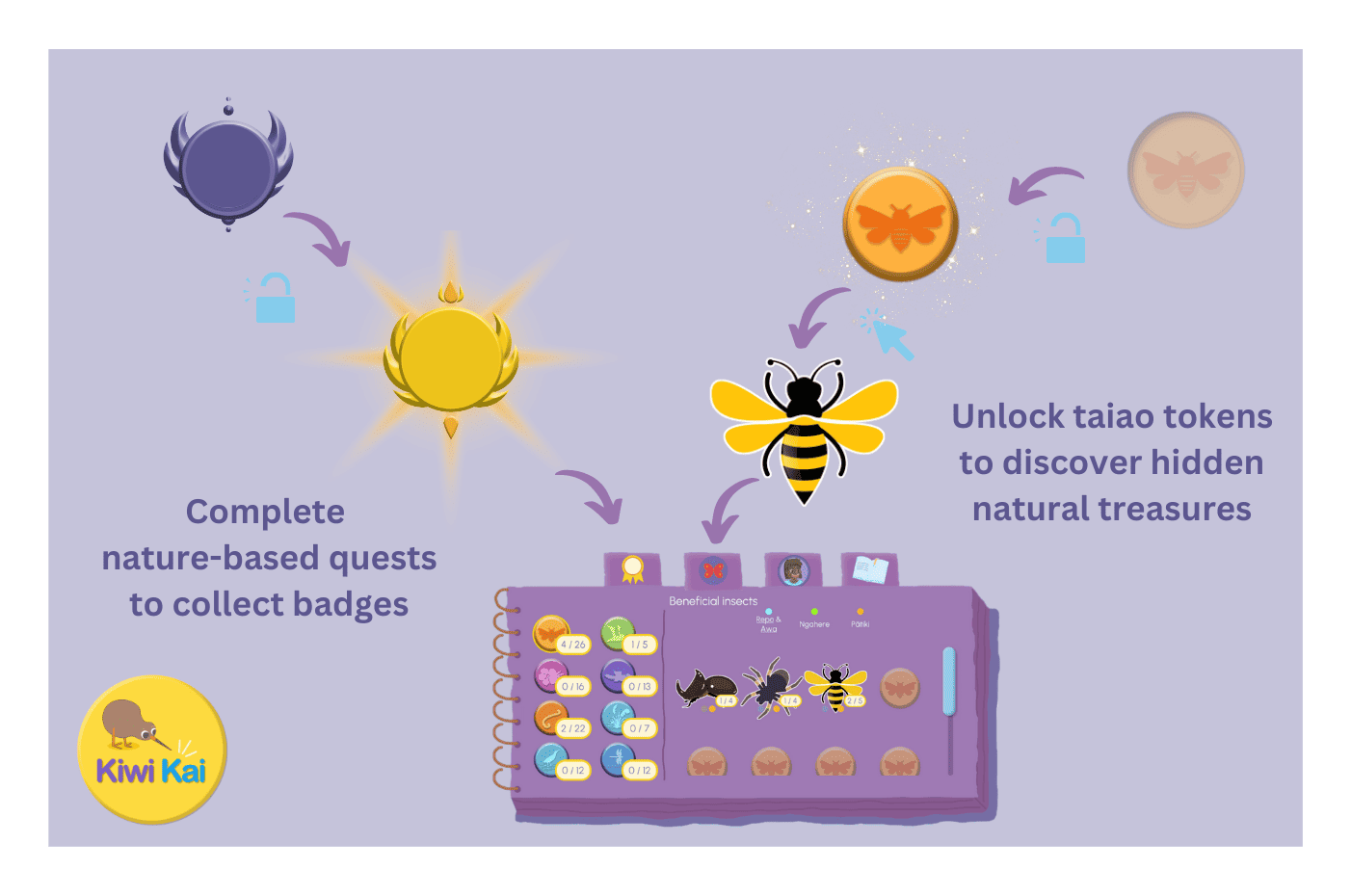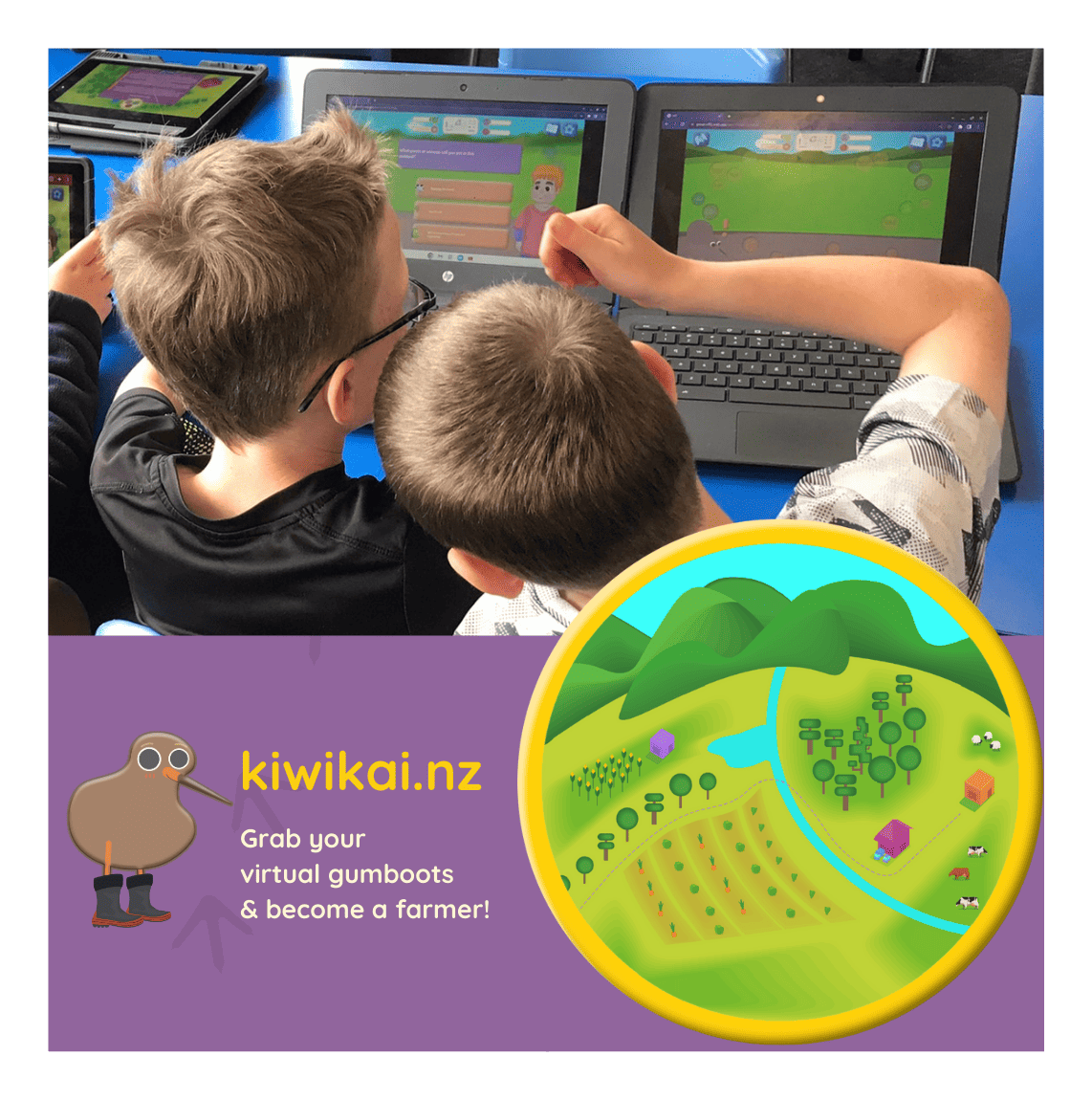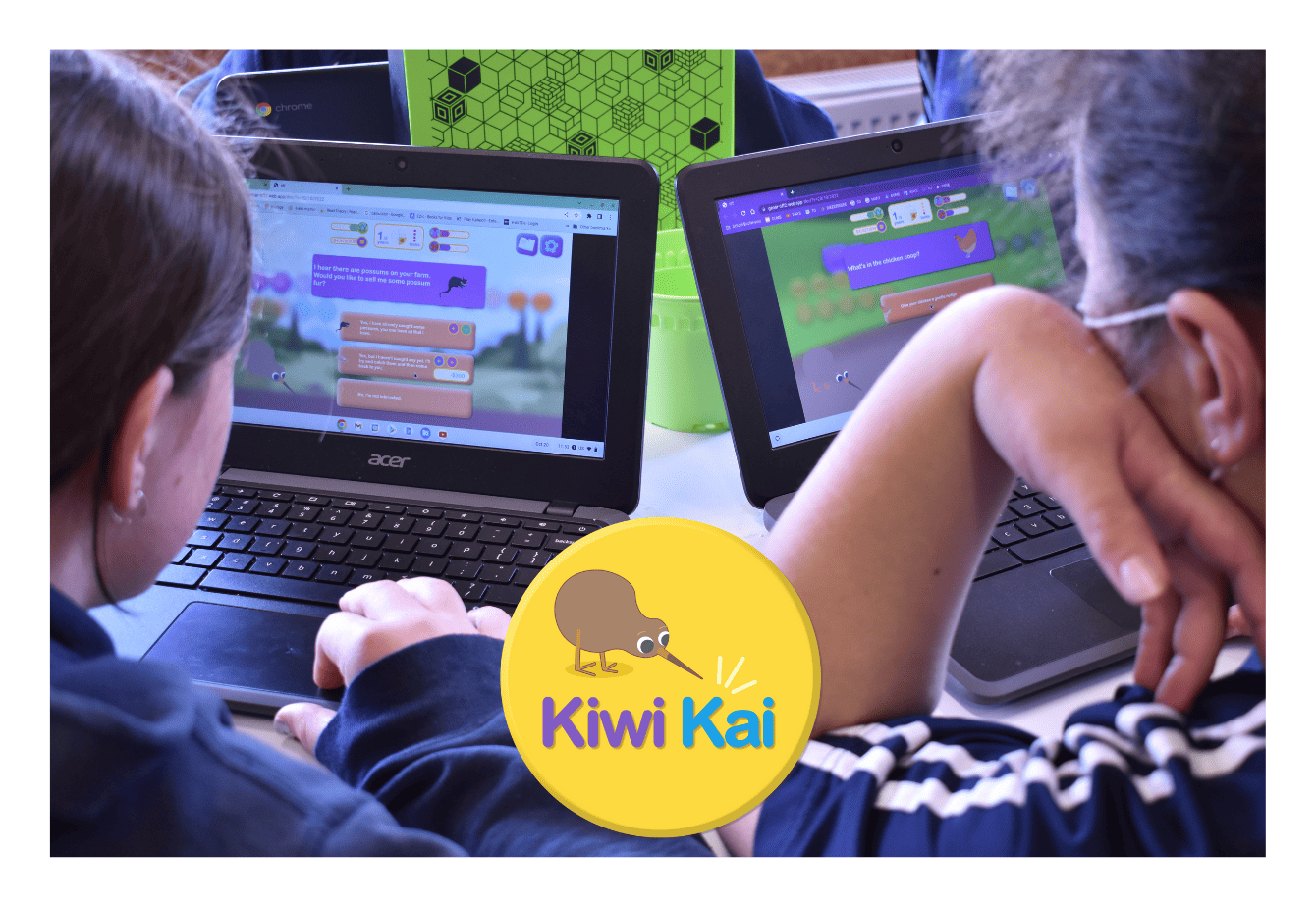The whakataukī that opens Kiwi Kai invites reflection on how communities can prosper through collaboration: Nāu te rourou, nāku te rourou, ka ora ai te iwi – With your food basket, and my food basket, the people will thrive and be happy.
The game then introduces players to the play mechanics, within which the educational topics are explored.
The player looks to four value bars while growing their virtual farm, each tracking their growth in different goals:
- “Manaakihia te taiao – Care for nature”
- “Whakatipua he kai hauora – Grow healthy food”
- and “Manaaki tāngata – Care for community”
- A counter also displays a financial balance as players furnish their farms with beehives and chook houses, as well as paying for the upkeep of their crops and/or livestock.


Catriona MacLeod, a senior researcher at Manaaki Whenua and project lead for Kiwi Kai, says 240 farm scenarios and 140 chores were designed to reflect the real-world social, economic and environmental context within which farms in Aotearoa operate. These draw on expertise in agriculture, ecology, mātauranga Māori, and education.
For example, nature-based quest “Repo restorer” invites players to choose a companion (a conservation worker, marae leader, or neighbour) to explore, restore and learn about ecosystems found across their farm. An in-game notebook records the player’s discoveries and progress, displaying special badges earned for their achievements, and quizzes revise what the player has learnt.
Catriona says the tool was co-designed with students from several primary schools in Ōtepoti Dunedin, in particular with Carisbrook and North East Valley Normal schools.
Resulting gameplay developments were rewarding for all involved and gave students a sense of curiosity and purpose in the project.
“The tool’s a springboard,” says Catriona, on the intent of Kiwi Kai. “We touched on a number of elements so deeper discussions could unfold.”
“On the subject of healthy food, we wanted rangatahi to think beyond their physical health, to where the food comes from and how [the production of that food] shapes their environment and community.”
Kotahitanga was a central principle in the development. Garth Harmsworth (Te Arawa, Ngati Tuwharetoa, Ngati Raukawa; Manaaki Whenua – Landcare Research) guided the integration of Te Ao Māori concepts into Kiwi Kai, and aimed to ensure all students were able to link the tool back to their own communities, environments and cultures.
Designs steeped in natural history, insightful storytelling, and a warm, relaxing tone all mean Kiwi Kai will be a gem for kaiako (educators) looking to inspire learning in STEM topics.
The tool invites empathy and discussion on the challenges of producing food, and although developed with 8-12-year-olds in mind, there’s plenty here to entice and inform users of all ages.
Kiwi Kai will feature in events planned for the NZ International Science Festival, including a three-day exhibit at the Festival Hub and several teacher workshops.

– Kerry Donovan Brown
